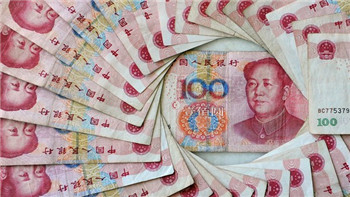(单词翻译:单击)

Jamie Dimon spoke for many big-bank executives last month when he glossed over glitches in China.
上个月,当杰米戴蒙(Jamie Dimon)为中国的麻烦打圆场时,他代表了许多大银行高管的立场。
Presenting second-quarter earnings from the New York headquarters of JPMorgan Chase, the largest US bank by assets, the chairman and chief executive said he disagreed with the idea that Beijing’s recent attempts to prevent a collapse in stock prices had signalled a retreat from open markets.
在摩根大通(JPMorgan Chase)纽约总部公布第二季度财报时,该行的这位董事长兼首席执行官表示,对于中国政府近来阻止股市崩盘的努力表明其在开放市场方面开了倒车的观点,他并不认同。以资产计,摩根大通是美国最大的银行。
“Not everything they do is going to work, but they still seem very committed to more and more market reform,” he said, citing last year’s link between the Shanghai and Hong Kong stock exchanges and efforts to broaden overseas usage of the renminbi. “I think they have the wherewithal to meet their short-term objectives of growth, but they will have bumps in the road. We expect that, and we’re going to look right through that.”
“他们的努力并非全会奏效,但他们实行更多市场改革的决心看上去仍然非常坚定,”他以去年推出的“沪港通”机制以及中国扩大人民币海外使用量的努力为例说,“我认为,他们拥有实现短期增长目标的必要资本,但他们在途中会有颠簸。我们预料到会发生这种情况,我们会把目光放长远。”
That long-term view explains why banks have been sanguine, on the whole, over last week’s wobbles in the currency.
长期前景解释了为何银行业对人民币上周的动荡行情总体上持乐观态度。
The decision last week by the People’s Bank of China to allow the renminbi to move more freely triggered a lurch downwards of as much as 4 per cent, startling many market watchers.
上周,中国央行决定允许人民币汇率更自由地变动,引发人民币汇率大跌4%,令许多市场观察人士感到震惊。
But while Western lenders, including Standard Chartered, HSBC and Citigroup, could be in for a rough ride if the swing in China’s currency is the start of a prolonged devaluation, banks say they are determined to ride out any shorter-term turmoil.
包括渣打银行(Standard Chartered)、汇丰(HSBC)和花旗集团(Citigroup)在内的西方银行可能会面临一段艰难旅程——假如人民币上周的波动是长期贬值开端的话。尽管如此,这些银行仍表示,即使短期内遭遇动荡,它们也决意要渡过这些难关。
The most obvious effect of a weaker currency is valuation losses on banks’ loans and trading assets in China, which many have used as a bridgehead in the world’s second-largest economy. A lower currency could also spell trouble for customers in China who have borrowed US dollars or euros but are earning renminbi — the “classic FX mismatch,” in the words of Keith Pogson, senior partner of EY’s Asia-Pacific financial services team.
人民币贬值的最明显效果是银行在华贷款和交易性资产的估值损失。这些贷款和交易性资产被许多银行用作它们在这个全球第二大经济体的桥头堡。人民币贬值也可能给一些借入了美元或欧元、但其收入以人民币计价的中国客户带来麻烦——用安永(EY)亚太金融服务业务主管包凯(Keith Pogson)的话说,这属于“典型的外汇错配”。
Western banks also face risks from domestic Chinese counterparts which have borrowed dollars to lend to their own clients. “Asian banks are extremely used to borrowing cheap dollars through interbank markets and then relending it,” said one London-based banker. “In the next couple of years there could be bigger problems if China’s going to carry on devaluing.”
西方银行还面临着来自中国国内银行的风险,后者借入了美元,再贷款给它们自己的客户。“亚洲银行非常习惯于通过银行间市场借入廉价美元,然后转贷出去,”一位驻伦敦的银行家说,“未来两年,如果人民币继续贬值的话,可能会出现更大的麻烦。”
But none of the big banks contacted by the Financial Times said that last Tuesday’s drop — the biggest fall since 1994 — and the subsequent confusion over the PBoC’s intentions was cause to reconsider their China plans. Many noted that big chunks of their loans in China are denominated in currencies other than the renminbi, and that translation losses from swings in exchange rates are something they had lived with for decades.
但英国《金融时报》联络的大银行都表示,上周四人民币的下跌——自1994年以来单日跌幅最大的一次——以及随后产生的对中国央行意图的困惑,并未促使它们重新思考在华计划。许多银行指出,它们在中国的大量贷款都不是以人民币计价的,而汇率波动导致的汇兑损失是他们打了几十年交道的东西。
“Teething troubles” are worth enduring, said Dominic Bunning, senior foreign-exchange strategist at HSBC, noting that China’s attempt to “create a two-way environment” for its currency was bound to cause some alarm, after a year and a half of range-bound trading. “The transition phase is always going to be volatile. [But] now pretty much everyone in the market is aware that the renminbi is not a one-way trade.”
汇丰(HSBC)高级外汇策略师多米尼克邦宁(Dominic Bunning)表示,“初期的烦恼”值得忍受。他指出,在一年半的区间交易之后,中国为人民币“创造双向波动环境”的努力,注定会引起一些警惕。“过渡阶段总是比较动荡的。(但)现在,市场上几乎所有人都意识到,人民币汇率不再单向变动。”
With combined exposures of more than $100bn to China, London-headquartered StanChart and HSBC have the keenest interest in Beijing’s new currency regime, followed by some big US banks such as Citi and JPMorgan.
总部设在伦敦的渣打银行和汇丰在华敞口合计超过1000亿美元,它们对北京方面的新汇率机制最感兴趣,紧随其后的是花旗和摩根大通等美国大银行。
China accounted for about half of StanChart’s Asian revenue in the first half of 2015 and less than 10 per cent of HSBC’s, research from Nomura shows.
野村(Nomura)的研究表明,2015年上半年,中国占到渣打银行亚洲营收的约一半,占汇丰亚洲营收的不到10%。


